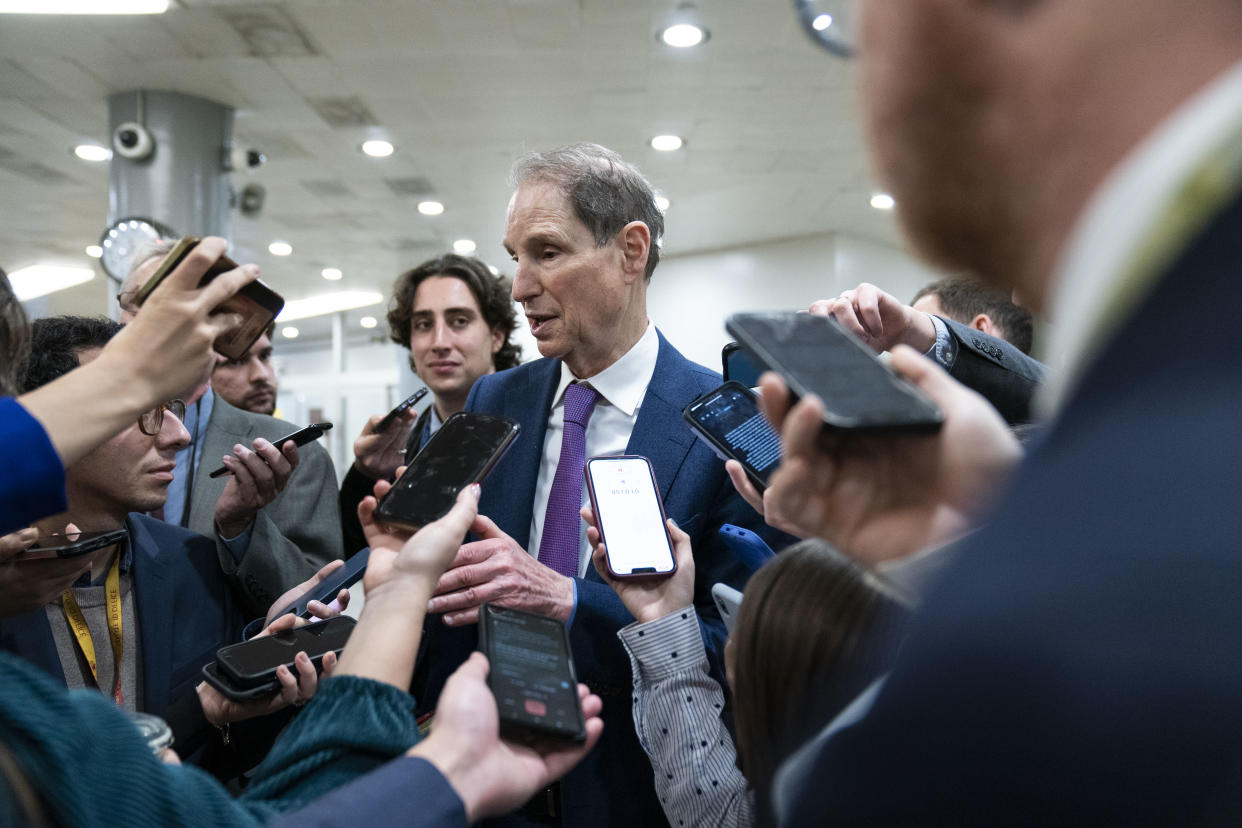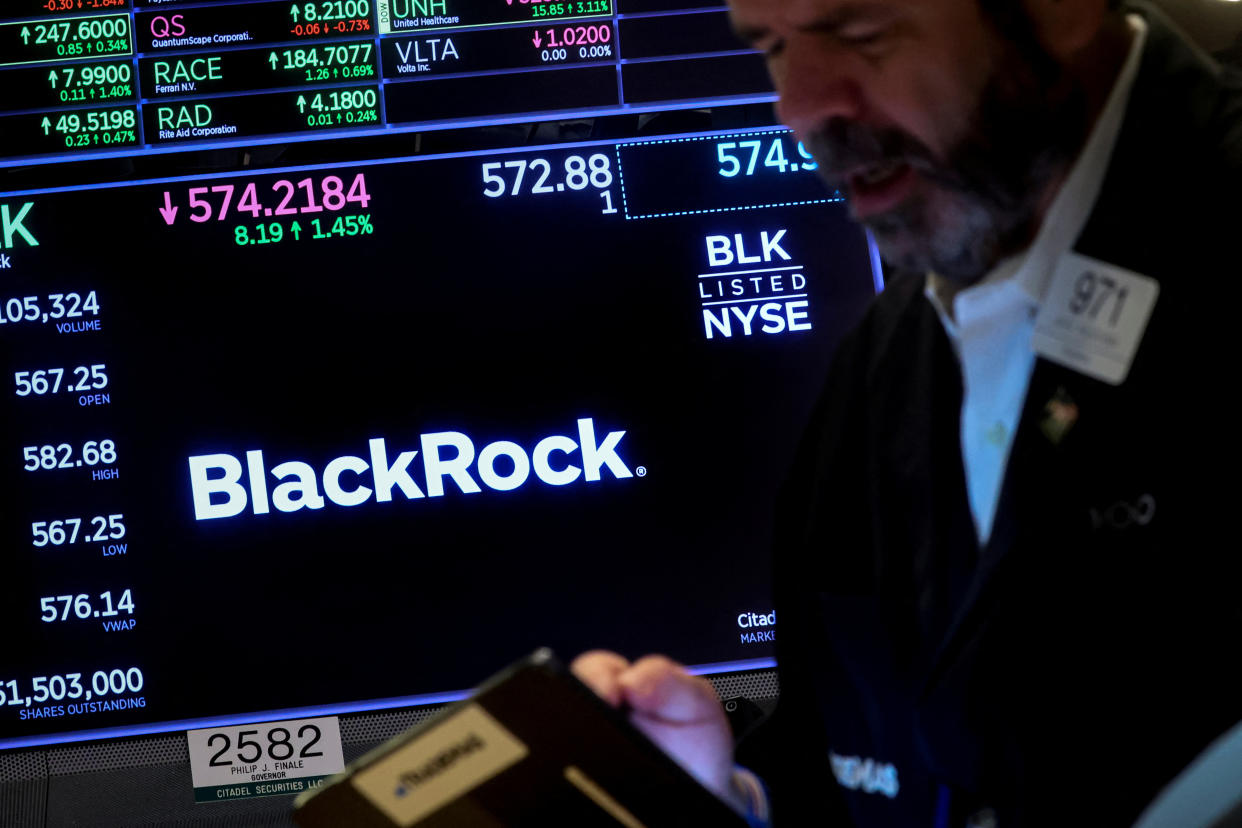Both parties are teeing up investigations into Corporate America for 2023
Corporate America is poised to be in the spotlight next year on Capitol Hill with a series of events this week confirming that investigations will come from all sides.
House Republicans formally laid out plans to sweep businesses into their investigations when they take control next month. Meanwhile, with the re-election of Sen. Raphael Warnock (D-GA), Senate Democrats are set to have the votes to control committees and do their own investigations of business there — even with Arizona Sen. Kyrsten Sinema changing her party affiliation to independent in a surprise twist.
As a result, corporations and their executives from sectors as varied as energy, big tech, financial services and pharmaceuticals, among others, can expect hearings, subpoenas, and investigations in 2023.
“When you don't have the ability to legislate, you shift your functions towards high-profile hearings and oversight,” Ed Mills, a policy analyst at Raymond James Washington, said in an interview. In the Senate, “there's going to be a desire to provide counter-programming to the hearings that are likely to occur in the House.”
In the House, Big Tech and energy are in the crosshairs
Even as he tries to secure the votes to become Speaker of the House, Kevin McCarthy released a document this week detailing his 2023 oversight plans. The possible leader said he wants to focus on things like “the bias of Big Tech companies,” the government’s “massive spending,” and charges that “Democrat policies have sold out American energy security and American industry.”
But in the hearings to come on these issues, much of the attention appears to be aimed towards Democrats and the Biden administration instead of at the companies themselves.
Even when it comes to Big Tech, a favorite boogeyman, House Republicans plan to focus on charges that there is “a ‘special relationship’ with government officials” alongside the actions of companies like Twitter (TWTR), Facebook (META), and Google (GOOG) or TikTok.
“The American people have just spoken,” McCarthy said in a recent Fox News interview saying that, among other things, voters “want to hold their government accountable.”
House Republicans have also said they will focus on broader antitrust issues and China, two areas that could offer bipartisan agreement.
‘Counter-programming’ from the Senate
In the Senate, Majority Leader Chuck Schumer — fresh off Warnock’s win — said this week that Democrats plan to use their majority to subpoena corporations and executives as part of investigations they are planning.
“Subpoena power can deal with corporate corruption and inequities and other problems throughout the country,” he said Wednesday during a press conference, but declined to offer more detail. “We have to talk to our members, we have to figure out the directions we want to go in."
Schumer's comments came before Sinema’s big news shook up the Senate, but while the Arizona Senator hasn’t said whether she will caucus with Democrats, she is keeping her committee assignments through the Democratic majority. Democrats "will maintain our new majority on committees [and] exercise our subpoena power," Schumer confirmed on Friday morning.
Democrats may focus on issues like perceived corporate profiteering during the high inflation of the last year as well as pharmaceutical companies. Democrats have signaled other areas could include topics like energy prices and union-busting.
Sen. Ron Wyden (D-OR), the chair of the powerful Senate Finance Committee, already sent a letter to Amgen (AMGN) inquiring about charges of tax avoidance on their prescription drug sales. The company allegedly avoided billions of dollars in tax payments through subsidiaries and Wyden wants revenue and tax information. If the company doesn’t respond to his satisfaction, a subpoena could follow next year.
Mills also noted that the Senate investigations could have real policy impacts as the White House or regulating agencies watch these investigations unfold.
“By having these large hearings, that gives instruction or political cover to the regulatory bodies,” he said. “That is almost a marching order for the regulators to do what they can using their power and kind of force executive action through executive orders.”
Pangaea Policy Founder Terry Haines agreed, recently telling Yahoo Finance that “regulators having a freer hand is something that's going to cause financial services firms a little bit more headaches.”
Other areas of investigation
Yet another area of focus could come from Republicans in the Senate who this week sent a letter demanding that 51 law firms preserve documents showing how they advise clients on environmental, social, and corporate governance initiatives, the first step in a possible investigation.
Senate Republicans won’t be in control in 2023 and the incoming chair of the House Financial Services Committee, Rep. Patrick McHenry (R-NC) hasn't yet signaled how strongly he will focus his committee on this issue. But the effort is likely to put giant asset managers under the microscope.
Rep. Andy Barr (R-Ky.) is on House Financial Services and recently said that giants like BlackRock, State Street, Vanguard, Invesco and Fidelity are “great companies” but that they need to “stop this nonsense of politicizing capital allocation through ESG.”
In the end, Mills doesn’t that the political theater will necessarily lead to huge policy changes but “at the bare minimum, what we would tell clients is that this is headline risk.”
He says investors should remember that “Washington policy is usually an accelerant in either direction based upon kind of where the market already is generally on a stock.”
Ben Werschkul is a Washington correspondent for Yahoo Finance.
Read the latest financial and business news from Yahoo Finance
Follow Yahoo Finance on Twitter, Facebook, Instagram, Flipboard, LinkedIn, YouTube, and reddit.
Source: Read Full Article



